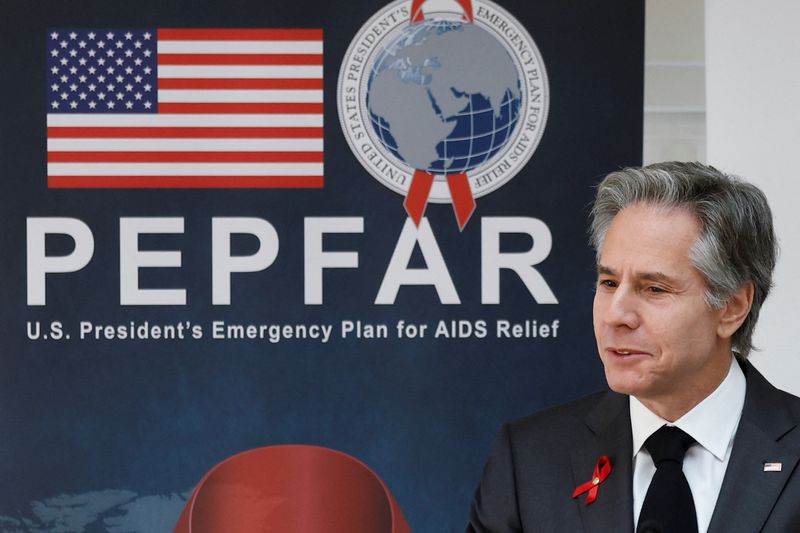
© Reuters. U.S. Secretary of State Antony Blinken delivers remarks on PEPFAR at World AIDS Day event hosted by the Business Council for International Understanding in Washington, U.S. December 2, 2022. REUTERS/Jonathan Ernst/File Photo
By Simon Lewis and Patricia Zengerle
WASHINGTON (Reuters) – The U.S. Congress’ failure to reauthorize the main U.S. program aimed at reducing the spread of AIDS sends a message that Washington is “backing down” from its leadership on the issue, State Department Spokesperson Matthew Miller said on Monday.
A deadline to renew long-term funding for the U.S. President’s Emergency Plan for AIDS Relief (PEPFAR) passed on Saturday, despite a stop gap deal reached to avoid a government-wide shutdown.
“In the short term, PEPFAR will be able to continue providing the lifesaving prevention, care, and treatment services in partnership with PEPFAR-supportive countries,” Miller told a reporters at a regular press briefing, declining to say how long current funding would last.
“However, the fact that Congress did not re-authorize the program sends a message to partners around the world, especially in Africa, that we are backing down from our leadership in ending HIV/AIDS as a public health threat.”
The Biden administration supports a five-year extension of PEPFAR, which began in 2003 under Republican President George W. Bush and enjoyed bipartisan support until recently. The program was renewed five years ago by unanimous consent – with no objections from members of either party – in both the House of Representatives and Senate.
But this year, Republican opponents of abortion rights, led by House member Chris Smith, who leads a House subcommittee responsible for the program, came out against it. Smith insisted that PEPFAR should not be reauthorized unless it barred nongovernmental organizations that used any funding to promote or provide abortion services.
Advocates say PEPFAR does not fund or provide abortion services and that none of its money goes directly or indirectly to fund abortion services.
The State Department says more than $100 billion has been spent on the global HIV/AIDS response through the program, which has saved 25 million lives.








